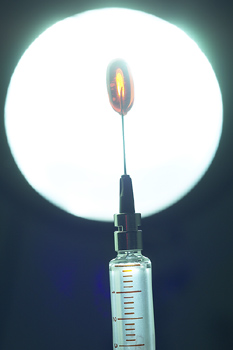Jul 6 2005
 It may have taken 12 years, but researchers now say that studies involving nearly 40,000 women in the U.S. has found that regular, low doses of aspirin do not prevent cancer, and vitamin E is pretty ineffective in warding off both heart disease and cancer.
It may have taken 12 years, but researchers now say that studies involving nearly 40,000 women in the U.S. has found that regular, low doses of aspirin do not prevent cancer, and vitamin E is pretty ineffective in warding off both heart disease and cancer.
At the start of the study in 1992 there were 39,876 healthy women involved and all were at least 45 years of age.
The group were tracked until 2004.
The women were divided into four groups; one group were given aspirin and an inert vitamin E placebo; another an aspirin placebo and real vitamin E; another both aspirin and vitamin E and the last group were given only placebos for both substances.
Dose levels were 100 milligrams of aspirin and 600 international units of vitamin E every other day.
The results of the study showed that though it was found that aspirin may not work for cancer, a number of earlier studies have found it does appear to help prevent heart disease, which is a bigger killer of women than cancer.
The report also found that aspirin might have a protective effect against lung cancer, but according to the authors, more research is needed to confirm this.
They also point out that there is no way of knowing whether higher doses of aspirin might yield different results.
Both reports were based on data from the Women's Health Study, which has been described as the largest undertaking of its kind involving the two substances.
In conclusion, although the aspirin-cancer findings were negative, earlier data from the same study group, released in March, found that aspirin therapy reduced the risk of stroke by 17 per cent, and in women 65 and older it did reduce the risk of heart disease, heart attack and stroke.
The findings on aspirin and vitamin E have been published in two reports in this week's Journal of the American Medical Association.